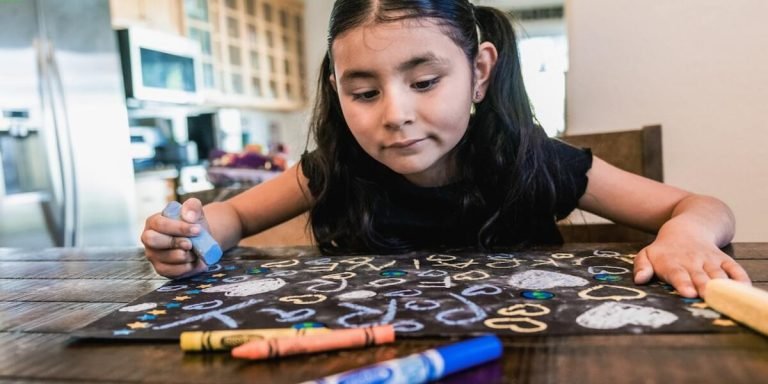John Holt Unschooling: A Revolutionary Approach to Childhood Education
John Holt Unschooling is a groundbreaking principle that revolutionizes the traditional understanding of childhood education. This holistic approach, named after its pioneer John Holt, emphasizes learning as a natural part of life and supports children’s innate curiosity to explore their world in their unique way.
This method opposes conventional schooling systems which might hinder creativity or enforce rigorous standardized curriculums. Instead, it empowers parents with an innovative teaching strategy anchored on fostering organic intellectual growth outside standard classrooms confines – right within the heartening warmth of their homes. The rest of this blog post will shed more light on how implementing John Holt unschooling can have profound impacts on your child’s educational journey.
Did you know?
John Holt, widely regarded as the father of unschooling, was initially an advocate for school reform before rejecting traditional schooling altogether. He coined the term ‘unschooling’ in 1977 to describe learning that arises naturally from a child’s self-directed activities and interests.
Understanding John Holt’s Unschooling Philosophy
John Holt, an educator and advocate for children’s rights, revolutionized the education sector with his unschooling philosophy. His approach dismantles traditional classroom structures in favor of a more flexible learning environment centered around each child’s unique interests and abilities. The primary goal is to foster their intrinsic curiosity rather than imposing extrinsic academic pressures.
Unschooling can be now effectively implemented thanks to advancements in modern technology which cater specifically to home-based education. Many digital platforms are designed based on John Holt’s principles that promote self-directed learning while ensuring students don’t miss out on essential curriculum milestones. Technology tools like interactive lesson plans, e-books or virtual 3D simulators aid parents who choose this homeschooling model by providing diverse resources at their fingertips.
Furthermore, as we navigate through an increasingly tech-driven world since COVID-19 pandemic hit us back in 2020s; integrating technology into John Holt’s unschooling has never been more relevant or timely nor convenient like it currently is in year 2023.
With such progressions enabling learners’ autonomy over what they learn when they want , coupled with parent-led mentoring improves not just cognitive development but also social skills fostering independent thinkers prepared for realities of future workspaces without compromising freedom and joy childhood ought give them all along.
The Core Principles of Unschooling According to Holt
The unschooling philosophy, devised by renowned educator John Holt, hinges on the belief that children learn best when their education is self-directed. But what does this mean in practical terms? How can parents apply it to home schooling and integrate technology into the learning process following this approach?
1. **Learning as a Natural Process** -John Holt’s unschooling view posits that learning isn’t confined within four walls under strict supervision but rather an organic aspect of living life itself.
2. **Child-led Learning Enthusiasm** – In 2023 we have access to many digital tools which allow kids immense freedom to explore subjects they’re interested in at their own pace and time without any external pressure or stress of exams.
3. **Freedom for Exploration** – Technology with its vast resources acts as an open playground where curiosity comes alive enabling children to experience real-time exploration unlike traditional classroom materials like textbooks limited only up until someone else’s knowledge limiting potential discoveries along with creativity.
4. **Nurturing Creativity & Problem-Solving Skills**- Today’s tech-world has multiple platforms allowing students across various age groups a chance not just consuming content passively but also creating material themselves thereby promoting problem-solving skills and boosting confidence levels overtime due thanks john holt unschooling methods fostering natural talents honed through constant exposure towards innovation thus enhancing creative thinking capabilities overall.
How Unschooling Differs from Traditional Homeschooling
Unschooling, a concept developed by educator John Holt in the mid-20th century, is often lumped together with homeschooling due to their shared philosophy of learning outside traditional school systems. However, the two methodologies are markedly different.
Homeschooling typically mimics conventional academic teachings inside a home environment. Parents or tutors educate children using standardized curricula and structured schedules similar to formal education settings but within the intimate setting of home.
On contrary unschooling encourages child-directed learning without pre-determined courses or routines making it stand distinct from its counterpart – homeschoolinng. The emphasis here lies on natural curiosity as an enabler for holistic development rather than syllabus-oriented growth.
A key tenet of john holt’s unschooling methodology revolves around encouragement towards self-learning based upon individual interests and passions thus igniting life-long desire for independent exploration when compared to usual methodologies where paths are predefined.
In light of modern day advancements especially regarding technology integration in education we see promising trends transforming this field more favourable towards kids offering tools enabling them explore the world on own terms bypasssing limitations earlier encountered through geographical barriers thus bridging gaps between theoretical bookish knowledge & real-world encounters providing practical understanding thereby molding future ready generation .
Implementing John Holt’s Ideas in Modern Home Education
John Holt’s unschooling concepts are shaping modern home education in unprecedented ways. Noted for advocating child autonomy and self-directed learning, Holt believed that children learn best when their curiosity is piqued, rather than following a rigid curriculum structure. By integrating technology into this approach to homeschooling, parents today can augment the inherent teaching capabilities of everyday life experiences.
Holt’s ideas resonate with contemporary educational paradigms more than ever before indeed in 2023 because they align seamlessly with advancements in digital learning resources. The surge of online platforms offers vast reservoirs of knowledge where kids can dive deep into subjects that captivate them the most – be it math puzzles or astrophysics documentaries! This technological integration echoes John’s vision on an open-ended exploration by offering choices without enforcing hard-and-fast rules on what should be learned first or next.
Moreover, incorporating technology does not dilute but actually enhances aspects such as socializing during schooling at home—a common concern among parents who prefer traditional schooling models over unschooling methods proposed by John Holt initially. Interactions have moved beyond physical boundaries; virtual collaboration tools foster team projects allowing students from different parts across the globe to work together while sitting at their homes comfortably!
Therefore, honouring John Holt’s ideas means empowering children through both autonomous and technologically integrated Home Education system which eventually leads them towards becoming lifelong learners—able to evolve and adapt according to ever-changing world quite effortlessly.
Practical Strategies for Adopting an Unschool Approach at Home
Implementing John Holt’s ideas regarding unschooling in a home education setting may seem daunting at first glance. However, adopting an “unschool” approach doesn’t necessarily mean abandoning structured learning entirely; instead, it means reevaluating and transforming the conventional dynamics of traditional schooling.
John Holt’s unschooling concept rests on the belief that children naturally learn from their daily life experiences due to their inherent curiosity. To adopt his unstructured method within your homeschool curriculum, consider these practical strategies involving technology:
1. Facilitate Natural Learning: Embrace technology to facilitate natural learning opportunities based on your child’s interests and curiosities. Utilize interactive applications or platforms which align with these areas of interest as powerful tools in encouraging independent exploration into various subjects.
2. Encourage Self-paced Study: Leveraging digital resources like online courses allows learners to progress at their own pace – truly embodying the essence of john holt unschooling methodology in 2023.
3. Use Tech-toys As Educational Tools: Integrating tech-based toys or games into playtime can be both fun and educational – without seeming too formalized- just how John Holt would have approved!
4.Allow for Interaction With Digital Communities: Online communities provide spaces where fellow homeschooled students can interact virtually overcoming isolation often associated with home-school education.
Balancing Structure and Freedom in a Child-Led Learning Environment
Understanding and implementing renowned educator John Holt’s unschooling ideas can be a game-changer in today’s home education scenario. As 2023 sees an increased trend towards homeschooling, the philosophy of balancing structure and freedom becomes even more critical. Here is how you can adopt this approach in your child-led learning environment.
Firstly, we have to grasp what we mean by ‘structure’ and ‘freedom.’ In traditional schooling systems, structure often denotes rigid timetables and fixed curriculums. Freedom tends to get associated with leisurely pursuits or free time outside school hours.
In contrast, John Holt’s unschooling perspective reframes these terms entirely. For him, structure forms the foundation from which children develop their independent thinking abilities—like providing access to age-appropriate books or fostering logical math reasoning skills using everyday tasks.
Freedom refers not just to playtime but also identifies youngsters’ innate curiosity leading them into self-directed learning paths—the cornerstone for childhood education focused on developing passionate learners rather than mere information retainers.
Applying these principles requires little alterations surrounding your established routines:
1) Encourage Exploration: Don’t limit teaching sessions within four walls–allow exploring nature trails during science lessons or baking brownies when working on fractions support experiential understanding.
2) Offer Choices: Let learners pick between reading topics at bedtime – astronomy vs historical fiction? This gives a sense of control over their own educational journey.
Success Stories: Real-life Applications of John Holt Unschooled Methods
There’s an increasing inclination among parents and educators worldwide towards unschooling, a learning concept pioneered by John Holt. This method offers considerable room for creativity, self-expression and independent problem-solving skills that traditional schooling might constrain. Unschooled children are often seen effortlessly integrating technology into their educational journeys thanks to the flexible curriculum.
Inspiring examples of success stories abound where students have harnessed technology effectively using John Holt’s methods. Take this case from Canada, in 2022. A pair of unschooled siblings developed an app that uses artificial intelligence to connect local farmers with potential customers within a set radius – a techno-social solution born out of unrestricted curiosity about food sourcing.
Another commendable example is that of Mia Chen from California who started her e-learning platform at just sixteen years old after being homeschooled for most part her life based on the principles outlined by Holt himself! The online hub now caters to thousands globally offering courses across multiple disciplines encouraging lifelong learning habits all virtually!
These real-life applications highlight how unconventional homeschooling techniques coupled with modern technological advancements can nurture innovative minds capable enough not only meet but exceed expectations laid down by conventional education systems.
Case Studies: Families Thriving Through the Unschooled Approach
In recent years, “john holt unschooling” or the unschooled approach to educating children has garnered significant attention. It’s a learning model that prioritize child-led activities and projects over structured instruction, resonating well within home schooling circles. Let’s delve into some real-life success stories where families have fluently integrated this method in their daily routines.
The Johnson Family from Michigan is an excellent example of how john holt unschooling methods could be effectively implemented at home. With two kids under ten who were previously struggling with traditional teaching practices, they decided to adapt a more individualistic approach framed by Holt’s philosophy – allowing each child learn on their own terms through discovery-based play rather than lesson plans.
Their son Alex found an early interest in digital technology which was nurtured organically without stipulating any standard textbooks or tests involved. He built his understanding around coding languages like Python and JavaScript using online resources primarily YouTube tutorials and discussion forums while being mentored by tech experts met via homeschool networking groups for guidance along the way since 2021.
Now aged twelve in 2023, Alex already possesses programming skills beyond his age level—programming Raspberry Pi devices as he dreams of venturing into robotics engineering—a stark testimony to successful application of John Holt inspired learning strategy throughout these initial formative years permitting students explore interests naturally fostering genuine enthusiasm about learning itself instead conforming them onto pre-moulded curriculum standards devoid any flexibility whatsoever .
Long-term Outcomes for Children Educated Under the Unschool Philosophy
The John Holt unschooling method has been often hailed as a natural, child-led approach to learning. It prioritizes personal interests and curiosity over traditional academic structures. Over several years of application, it’s become evident this philosophy doesn’t just facilitate short-term progress; there are significant long-term outcomes for children educated under this methodology too.
Firstly, one notable outcome observed is greater creativity and out-of-the-box thinking among unschooled children. Unlike conventional schooling methods that lean heavily on rote-learning or standardized curriculum plans, John Holtian methods foster an environment allowing ideas to flow freely fostering heightened innovation in students’ minds.
Children undergoing a process modeled after john holt unschooling learn how to teach themselves autonomously from an early age by taking responsibility for their own education journey based upon interest-driven self-awareness building up confidence boosted competencies adopted throughout their adulthood .
Conclusion
In the world of education, John Holt unschooling has emerged as a revolutionary approach that prioritizes the child’s inherent curiosity and thirst for knowledge. It highlights how essential it is to let children learn at their own pace, following their interests instead of a rigid curriculum. This form of teaching truly captures what childhood learning should be – an exciting journey filled with discoveries.
We’re positive you’re excited about exploring more methods just like these that can reframe traditional ideas on educating kids! Feel free to delve deeper into our rich collection here on our website where we constantly update informative pieces targeting both parents and educators alike. From offering parent-teacher guidance norms to discussing innovative educational frameworks – there’s plenty waiting here for you!
So why wait? Dive right in so together we may sculpt well-rounded individuals from curious young learners who embrace lifelong learning.







